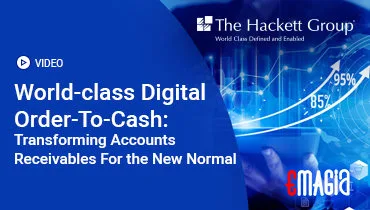Checks have long been a cornerstone of financial transactions, offering a tangible and traceable method of payment. Despite the rise of digital payment systems, understanding the various types of checks remains crucial for both individuals and businesses. This guide delves into the different types of checks, their features, uses, and how they fit into today’s financial landscape.
Understanding Checks
A check is a written, dated, and signed instrument that directs a bank to pay a specific sum of money to the bearer. It serves as a promise to pay and is a fundamental component of the banking system.
Personal Checks
Personal checks are issued by individuals from their personal bank accounts. They are commonly used for everyday transactions such as paying bills, rent, or reimbursing friends. While convenient, personal checks can bounce if there are insufficient funds in the account, leading to fees and potential legal issues.
Business Checks
Business checks are similar to personal checks but are drawn from a business account. They are used for paying suppliers, employees, and other business-related expenses. Business checks often include additional features like multiple signature lines and enhanced security measures to prevent fraud.
Certified Checks
A certified check is a personal check that the bank guarantees. The bank verifies that sufficient funds are available in the account and sets aside the amount until the check is cashed. This provides assurance to the payee that the check will not bounce.
Cashier’s Checks
Cashier’s checks are issued by a bank and drawn from the bank’s own funds. They are commonly used for large transactions, such as purchasing a car or a home, where the payee requires guaranteed funds. The bank assumes responsibility for the payment, making cashier’s checks more secure than personal checks.
Money Orders
Money orders are prepaid instruments purchased from a bank, post office, or other authorized entities. They are used when the payer does not have a checking account or when the payee requires guaranteed funds. Money orders are often used for sending money through the mail or for international transactions.
Traveler’s Checks
Traveler’s checks are preprinted, fixed-amount checks designed for travelers to use as a secure form of payment. They can be replaced if lost or stolen, making them a safer alternative to carrying large amounts of cash. However, their usage has declined with the advent of credit cards and digital payment methods.
Electronic Checks (e-Checks)
Electronic checks, or e-checks, are the digital equivalent of paper checks. They allow funds to be transferred electronically from the payer’s account to the payee’s account. E-checks are commonly used for online bill payments and direct deposits.
Post-Dated Checks
A post-dated check is written with a future date, instructing the bank not to process the payment until the specified date. While legal, banks may process post-dated checks before the date unless prior arrangements are made, so caution is advised.
Stale Checks
A stale check is one that has not been cashed or deposited within a certain period, typically six months. Banks may refuse to honor stale checks, so it’s important to deposit or cash checks promptly.
Open Checks
An open check is a check that is not crossed and can be cashed at any bank by the bearer. While convenient, open checks are less secure and more susceptible to fraud.
Crossed Checks
A crossed check has two parallel lines drawn across its face, indicating that it must be deposited directly into a bank account and cannot be immediately cashed. This adds a layer of security by ensuring that the funds are traceable.
Bearer Checks
Bearer checks are payable to whoever holds the check, without the need for identification. They are risky due to the potential for theft or loss, as anyone in possession of the check can cash it.
Order Checks
Order checks are payable to a specific person or entity and require endorsement to be transferred. They offer more security than bearer checks, as only the named payee can cash or deposit the check.
Self Checks
A self-check is written by an account holder to themselves, often used to withdraw cash from their own account. While convenient, self-checks should be handled with care to prevent unauthorized access.
Ante-Dated Checks
An ante-dated check is written with a date earlier than the actual date of issuance. This is uncommon and may raise questions about the validity of the transaction.
Bank Drafts
Bank drafts are similar to cashier’s checks but are drawn on a bank’s funds and guaranteed by the issuing bank. They are often used in international transactions and large purchases.
Payroll Checks
Payroll checks are issued by employers to pay employees for their work. While many companies now use direct deposit, payroll checks are still used in some businesses.
Government Checks
Government checks are issued by federal, state, or local governments for various purposes, such as tax refunds, social security benefits, or unemployment payments.
Traveler’s Checks
As previously mentioned, traveler’s checks are designed for secure transactions while traveling. They are less commonly used today but still offer a safe alternative to cash in certain situations.
How Emagia Enhances Check Processing
Emagia offers advanced solutions for automating and streamlining the check processing workflow. By integrating artificial intelligence and machine learning, Emagia’s platform can:
- Automate Data Entry: Extract and process information from checks quickly and accurately.
- Enhance Security: Detect fraudulent checks through pattern recognition and anomaly detection.
- Improve Efficiency: Reduce manual errors and processing time, leading to faster transactions.
- Provide Real-Time Tracking: Monitor the status of checks throughout the processing cycle.
Emagia’s solutions help businesses manage their check transactions more effectively, ensuring accuracy, security, and compliance.
Frequently Asked Questions (FAQs)
What is the difference between a cashier’s check and a certified check?
A cashier’s check is issued and guaranteed by the bank, drawn from the bank’s own funds. A certified check is a personal check verified and guaranteed by the bank, with funds set aside from the account holder’s account.
Can I cash a post-dated check before the date written on it?
Banks may process a post-dated check before the date unless prior arrangements are made. It’s advisable to communicate with your bank if you intend to post-date a check.
What happens if I lose a check?
If you lose a check, contact the issuer immediately to stop payment and request a replacement. For cashier’s checks or money orders, additional steps may be required, such as filing a declaration of loss.
Are electronic checks safe?
Yes, electronic checks are generally safe and offer encryption and authentication measures. However, it’s important to ensure that transactions are conducted through secure and reputable platforms.
How long is a check valid?
In the United States, checks are typically valid for six months. After that, they are considered stale, and banks may refuse to honor them.
Can someone else cash my check?
If you endorse the check to another person, they may be able to cash it. However, banks may have policies requiring identification and may refuse third-party checks.
What is a bounced check?
A bounced check is one that cannot be processed due to insufficient funds in the account. This can result in fees and potential legal consequences.
How do I stop payment on a check?
Contact your bank as soon as possible to request a stop payment. There may be fees associated with this service, and timing is crucial to prevent the check from being processed.
Is it safe to mail a check?
Mailing a check carries some risk, such as theft or loss. If you must mail a check, use secure envelopes, avoid indicating it’s a check on the envelope, and consider using certified mail for tracking.
Can I write a check in a foreign currency?
Some banks offer checks in foreign currencies, but this may involve additional fees and processing time. It’s advisable to consult with your bank for specific procedures and options.
Understanding the various types of checks and their appropriate uses is essential for managing personal and business finances effectively. While digital payments continue to rise, checks remain a relevant and secure method of transaction when used correctly.



